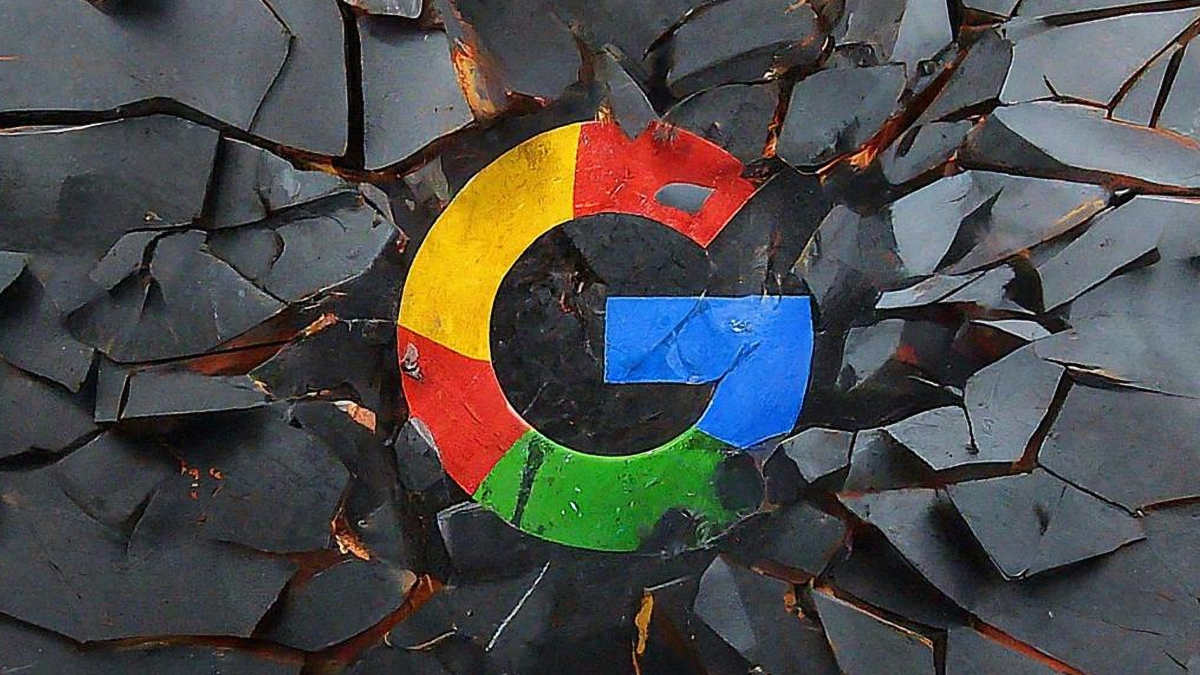Google is Poised to Devour Yet Another Market: Television
Hannah Garden-Monheit / Jul 9, 2025Google is now a proven repeat offender when it comes to illegal monopolization, with courts recently ruling that for years it unlawfully restrained free and fair competition in online search and advertising technology markets. Now it's time to turn our attention to how the giant is gobbling up our entertainment industry, too.
Television used to be a unifying part of American culture. For decades, we’d gather at the office water cooler for a shared ritual, dissecting last night’s episode of M*A*S*H, Seinfeld, or The Sopranos. This wasn’t just entertainment. It was a way to feel connected — a shared cultural experience between people who may have had little else in common.
Today, that’s been replaced by the shared experience of parents trading concerns about how our kids are glued to YouTube, watching algorithmically served junk that feels more like digital fast food than storytelling. Sesame Street taught much of my generation our numbers and letters, but these days the program faces a financial crisis in part because YouTube has taught our own children to instead crave short-form, mindless junk like video game streamers and Blippi, the so-called “Mister Rogers for the YouTube age.”
YouTube’s influence on our kids was bad enough when it was limited to mobile devices like phones and tablets. But now YouTube is also poised to displace TV as we know it. With over 2.7 billion users each month, YouTube has achieved a scale that makes it practically unavoidable. It eclipses streaming services like Netflix and Disney+ in TV watch time by a wide and growing margin, and broadcast and cable television have been left in the dust. TVs — not phones, tablets, or computers — are now the top device for YouTube viewing in the United States.
The family TV used to be a place where parents could expect to find educational, age-appropriate programming, with clear limits on commercials targeting kids. YouTube’s living room takeover not only sidesteps that regulatory framework for protecting our kids, it also more broadly threatens to replace American television culture with something far more empty, isolating, and predatory — for grown-ups and kids alike. As YouTube’s CEO recently proclaimed, “This isn’t about YouTube becoming more like traditional TV. This is about TV becoming YouTube.”
YouTube is powered by the vast surveillance capabilities of Google, which it wields in relentless service of its corporate profits. Google tracks not only what videos you watch, but also harvests data from your Google searches, purchase history, communications, activity on third-party sites that use Google services, and more. That information can feed YouTube’s recommendation engine, which is designed to keep you watching. The more you watch, the more ads you see — and the more personal data YouTube uses to ensure those ads convert into clicks and purchases. This is big business. Google made $8.9 billion from YouTube ads in the first quarter of 2025 alone, a 10% year-over-year increase.
YouTube’s growing dominance gives it the power to shape not just what people watch, but how culture itself is created and consumed. For content creators, YouTube’s grip on the industry creates a high-stakes game of survival. Success depends less on originality or quality, and more on understanding — and appeasing — an opaque algorithm. Creators are incentivized to chase trends, game thumbnails, and push clickbait to stay visible.
YouTube is paying to promote the narrative that it’s a boon to “the creator economy,” but content creators should be wary of over-reliance on an increasingly dominant platform whose sole allegiance is to its own bottom line. Just ask small businesses about their experience with Amazon. Like YouTube, Amazon originally seemed like an attractive channel for reaching new markets. But once it rose in power, it began extracting more and more of small businesses’ revenue, distorting search results in its own favor, and engaging in what regulators allege is unlawful anticompetitive conduct. YouTube’s rising power similarly leaves content creators’ livelihoods subject to the whims of a corporate gatekeeper. Indeed, YouTube is already extracting 45% of ad revenue earned on content produced entirely by others at no cost to it — even more than the 20% tax extracted by Google in its monopolization of advertising technology markets.
Even Hollywood studios may be at risk. Studios are increasingly relying on YouTube as a marketing channel, posting early runs or clips of their shows in hopes of luring viewers back to their own streaming platforms. In doing so, they may be trading short-term exposure for long-term vulnerability, further empowering a single gatekeeper platform. The more studios rely on YouTube to reach viewers, the more the once-powerful studios will find that they too are at the whims of YouTube’s algorithm and Google’s self-interests. Much like Amazon used small businesses’ data to copy their best-selling products, YouTube may eventually use data about the performance of studios’ content on YouTube to displace them altogether.
In the end, it is American viewers who will suffer most. YouTube’s ad-heavy, addictive interface is built to maximize engagement and to lock people into its ecosystem. Its algorithms reward outrage, repetition, and emotional manipulation — not curiosity or thoughtful storytelling. The result is a fragmented, commercialized media ecosystem and an American public that increasingly lives in our own distinct cultural bubbles, with fewer and fewer shared experiences to unite us.
YouTube originally promised to democratize media, offering anyone with a camera and an idea the chance to reach the world. Instead, we got a corporate behemoth optimized for revenue-generating addiction. Left unchecked, YouTube’s power will degrade the quality of content, suppress fair compensation for YouTubers, Hollywood talent, and everyone in between — with our shared American cultural experience as collateral damage. We’ve now been twice bitten by Google’s illegal monopolization of markets. Let’s stop Google and YouTube from ruining television too, before it’s too late.
Authors

